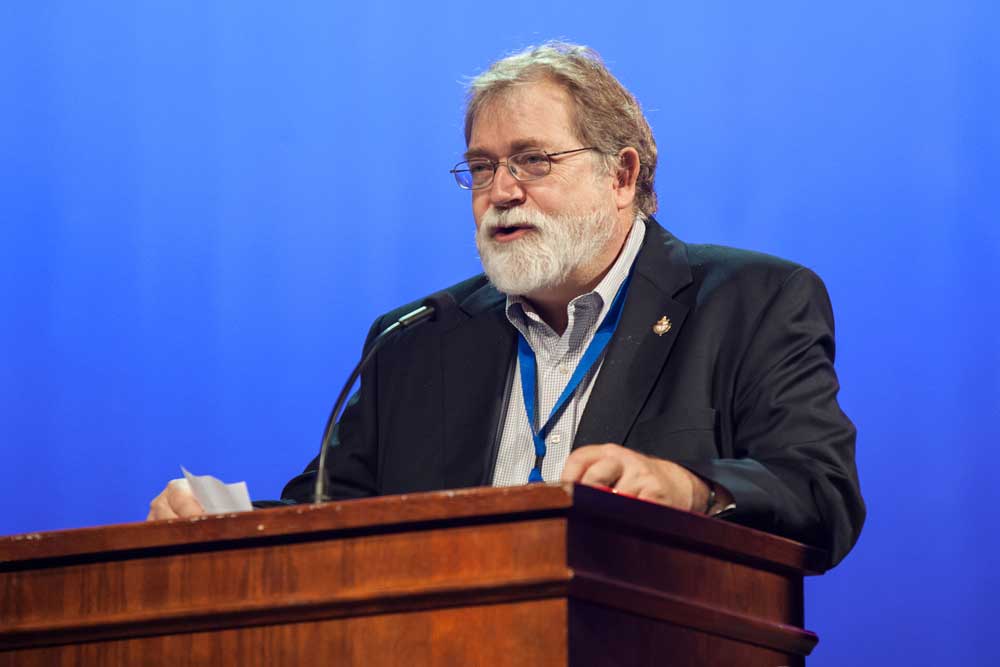The following letter from Canon Phil Ashey first appeared in the June 28, 2013 edition of the AAC’s weekly email update. Sign up for this free email here.
How should Christians respond to the decisions of the US Supreme Court—and to an increasingly hostile and marginalizing culture?
Dear Friends in Christ,
I won’t repeat the excellent analyses done by others. I will simply say that the decision in US v Windsor striking down certain sections of the Defense of Marriage Act (DOMA) is a significant step by the Court in redefining marriage. As Christians, we know that the institution of marriage was ordained by God between one man and one woman for life, and is part of God’s order of creation (See Genesis 2:24). God’s institution of marriage existed prior to the institution of any governmental authority. Therefore the state cannot redefine what God has ordained. As Tony Perkins of the Family Research Council observed, “What God imprinted on the human heart, no judge or court can change. The Court can declare same-sex “marriage” a legal right in the eyes of government, but judges cannot make it morally right in the hearts of the people.”
The problem is that this opinion represents a worldview among the ruling elites in our democracy that is increasingly hostile to Judeo-Christian faith and morality. Consider the language used by Justice Anthony Kennedy (writing for the majority in Windsor) to describe the intent of DOMA and those who defend the traditional definition of marriage:
“[DOMA is] a law designed to injure the same class the State [of New York] seeks to protect” (570 US 19)…” “[its intent is]..a bare…desire to harm a politically unpopular group..” (ibid. p. 20) “[its legislative history reveals]..strong evidence of a law having the purpose and effect of disapproval of that class. The avowed purpose and practical effect of the law here in question [DOMA] are to impose a disadvantage, a separate status, and so a stigma upon all who enter into same sex marriages,” (ibid. p. 21) and “interference with the equal dignity of same sex marriages.” (ibid.)
How do the five justices of the US Supreme Court characterize those who defend the traditional and biblical definition of marriage between a man and a woman for life? How does this ruling elite describe those who defend what God has ordained? They describe them – Christians – as people who interfere, injure, harm, and stigmatize others.
The hostility of the majority in stigmatizing Christians and others who uphold traditional values was not lost on Justice Antonin Scalia, who fired back in his dissent: “It is one thing for a society to elect change; it is another for a court of law to impose change by adjudging those who oppose it [as] enemies of the human race.”
There you have it. What do we as Christians do when the ruling elites characterize us as “enemies of the human race?” How can we remain engaged in public discourse that has become so antagonistic to the Christian faith?
Faced with such hostility or indifference to the Christian worldview, some have said that we should simply disengage. We should avoid issues like abortion and same-sex marriage altogether. Stay out of politics. Just preach the gospel and present Jesus Christ to people and don’t address issues that are likely to offend potential converts.
But Christians are supposed to impact and permeate society like salt and light; we are supposed to shine like stars as we hold out a very public hope in Christ for all (Matthew 5:13-16; Phil. 2:15). By withdrawing into a seeker-sensitive ghetto, the radical message of Jesus Christ’s transforming love may become less offensive. But such faith in Christ will also become increasingly irrelevant and meaningless as we post “no trespassing” signs and create “Bible free zones” around those behaviors and worldviews blessed by secular ruling elites. Increasingly marginalized and withdrawn from the public square, Christians and their faith will be seen as too trivial to be true.
In his commentary on The Sermon on the Mount (IVP: 1978), John Stott addresses this very question. Addressing the relationship between evangelism and engaging the culture, he says that Christians must not withdraw into pietism. Jesus says we are “the salt of the earth” and “the light of the world.” (Matt. 5:13-16). He is calling his disciples – you and me – to exert a double influence on the secular community, a negative influence by arresting its decay (the function of salt) and a positive influence by shining a light in the secular darkness on all that is truly good and noble and excellent. As Stott observes,
“It is one thing to stop the spread of evil; it is another to promote the spread of truth, beauty and goodness…”
This is our double vocation as Christians, engaging a hostile culture and its ruling elites by stopping the spread of evil and promoting the spread of truth and goodness. Stott goes on to say:
“God intends us to penetrate the world. Christian salt has no business to remain snugly in elegant little ecclesiastical salt cellars; our place is to be rubbed into the secular community, as salt is rubbed into meat, to stop it going bad. And when the society does go bad, we Christians tend to throw up our hands in pious horror and reproach the non-Christian world; but should we not rather reproach ourselves? One can hardly blame unsalted meat for going bad. It cannot do anything else. The real question to ask is, ‘where is the salt?’” (p. 65)
What can we do to be the salt of the earth? Can we arrest the decay the Windsor decision portends by supporting initiatives in our states to amend state constitutions to define marriage as between one man and one woman? Can we commit ourselves to use our best efforts, research and information technology to illustrate the damage same sex marriage does to marriage and family life, to reverse the public erosion of confidence in the sanctity of traditional marriage, just as we began to do in favor of the sanctity of life 40 years ago when the tide for abortion seemed irreversible? Can we arrest the decay in our democratic system of checks and balances by recalling public servants in the executive branch that refuse to enforce laws like DOMA and Proposition 8 (California) – thereby enabling the judiciary to override (without any check by the executive branch) the legislative will of the people who enacted those laws?
What can we do to be the light of the world? How can we promote by word and example the beauty and strength of marriage between one man and one woman for life? What can we do within our churches to strengthen marriages so that they actually witness to the kind of love Christ has for his bride, the church (Ephesians 5)? What can we do to make Christian marriage and family life so arresting, so beautiful, that others will see the difference Jesus Christ can make in our lives, and desire not only such life but Christ himself?
Yours in Christ,
Phil+
The Rev. Canon Phil Ashey
Chief Operating and Development Officer, American Anglican Council



